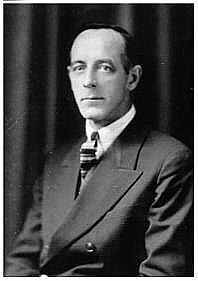 George Albert Leddy was
born in 1883 in a logging camp on land now encompassed by
the Army National Guard Military Reservation in
Underhill, Vermont. The Leddy Clan established themselves
in that area in the mid-1800s after fleeing the Irish
potato famine. Appropriately, one of the homesteads is
now The Maple Leaf Farm, a substance abuse center;
consistent with the concerns raised about alcohol abuse
in George's poetry.
George Albert Leddy was
born in 1883 in a logging camp on land now encompassed by
the Army National Guard Military Reservation in
Underhill, Vermont. The Leddy Clan established themselves
in that area in the mid-1800s after fleeing the Irish
potato famine. Appropriately, one of the homesteads is
now The Maple Leaf Farm, a substance abuse center;
consistent with the concerns raised about alcohol abuse
in George's poetry.
George, better known as Bert, left the farm and migrated to the city, as many did during the early part of the century to work in the woolen mills. Soon, armed with the new industrial technologies and his creative genius, Bert was setup in a business on Church Street in Burlington selling ice cream and candy made on machines he built. Later, Bert applied his skills as an employee of General Ice Cream.
Bert's fascination with tooling, and his sociable personality, eventually lead him to employment at the Strong Hardware Store. Many of the poems he wrote in his later years were tributes to the many friends he made while working there.
Bert's creative energy was evident around the house he shared with his wife Nellie and daughter Mary in Burlington. Within the garages and outbuildings could be found examples of his inventiveness: A sleigh with a studded wheel-rim mounted in the rear, chain driven by a motorcycle engine was Bert's prototype of a snow machine; Electric motors with long extension cords powered his lawn mowers; A series of pulleys and belts in the basement are the remnants of a candy making machine; Exterior doors were equipped with wooden attachments at the bottom which sealed out the cold when the door was closed; The TV roof antenna was adjusted from a downstairs closet with a series of weights and pulleys; Valves on sink drains could be set to direct waste water to outside gardens.
Bert's creativity was also reflected in two unpublished manuscripts of poetry he left behind when he passed away in 1967. Works inspired by his beautiful gardens, good friends, and contemporary issues. But his most powerful ballads, dealing with quests for gold and rugged adventure reflective of the wanderlust of his generation, left us a means to experience the emotions of men whose very survival depended on their love of God, country, family, and friends.